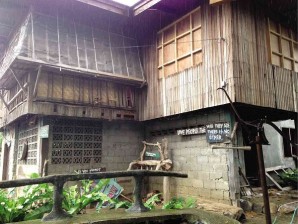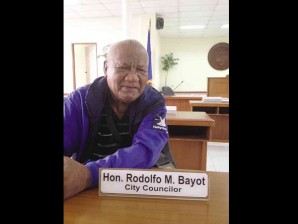Barefoot dad bares soul: Propoor
ZAMBOANGA CITY—Despite having no machinery and money to support his reelection bid, the city’s—and perhaps, the country’s—only barefoot politician landed on the list of top eight winning city councilors after the midterm elections.
If there was one thing Councilor Rodolfo Bayot should be proud of, it is the fact that the votes that made him win a fresh mandate at the local legislature were genuine and not tainted with fraud.
These perceptions about Bayot’s fresh victory did not come from an ally or a relative. These were how ordinary people, such as tricycle drivers, regarded his reelection.
One of them, Enrico Mande, said what made him believe that Bayot’s votes were not brought in by an anomaly was that “he did not spend a single centavo to bribe voters.”
“On the contrary, his supporters even pitched in and brought food during the campaign,” Mande said.
Article continues after this advertisementFrancisco Tuble, another tricycle driver, said while other politicians—who sought high ranking in the results of voting for city councilors—distributed bottled water, food and candies to those who attended their rallies, Bayot, whom people here simply refer to as “Kap,” just chatted with his supporters.
Article continues after this advertisement“We always look up to him as among us and not a city councilor,” Tuble said.
Rene Enriquez, a neighbor of the barefoot councilor, said other politicians race to put up expensive houses or have their existing homes renovated so these would stand out among the crowd of structures in the city.
“But his (Bayot’s) house remained dilapidated and has not undergone renovation from his time as village chair for three consecutive terms,” Enriquez said.

COUNCILOR Rodolfo Bayot continues to live in this dilapidated house that was left to him by his siblings. JULIE S. ALIPALA
Bayot lives in a two-story wooden house with roof and windows in great disrepair.
The only thing that sets his house apart from the rest of the shanties in the first district is it is the only dilapidated structure that displays inspiring quotes.
“I did it to remind me that I am not a great person, that I may be different but this is the reality that we have here in our city,” Bayot said when asked why his house remains in disarray.
Bayot’s lifestyle is also reflected on the way he looks even when in public. Often mistaken for a beggar by first-time visitors, the reelected city councilor has always been the object of ridicule by his colleagues in the past.
His advocacy for the poor also regularly pitted him with colleagues because he would always bring it up even if the agenda concerned other matters. His colleagues would often tell him he was off-topic.
“They always put me down, especially during session conferences and meetings,” Bayot said.
He cited one council session, during which councilors were deeply animated as they discussed a proposal to tax pushcart owners, charcoal makers and residents who just love to plant fruit trees.
“Imagine they want to charge taxes of up to 400 percent for pushcart owners. So I asked them if they, by chance, had pushed carts around the city while moving fruits or vegetables even for once in their lives? Did they know how charcoal is being made so that the money they earn could buy food for their families?” Bayot recounted telling his colleagues.
He said while his colleagues wasted time on such unpopular proposals, they also spent almost P80 million to make the city council building as comfortable as possible.
“The government spent P80 million on a building with the entire tiled floors of the session room covered with wires and outlets for the sound system and microphones, and two large restrooms located at the stage facing the guests,” he said.
This, Bayot said, was decided upon by his colleagues even if hundreds of city dwellers could not find food to eat.
The problem, Bayot said, was despite the money they wasted, the councilors have to contend with leaking water inside the new building.
Reacting to a suggestion from a colleague in the outgoing city council that he might have to learn more so he could become an effective local legislator, Bayot said he need not attend parliamentary seminars or workshops on local governance and ethics.
Bayot said discussions on how to upgrade the lives of the poor should not be bounded by rules because the most important thing is to help them.
As to the way he looks, Bayot said he has no intention of donning expensive clothes or changing his attire when the new council starts sessions in June.
“I might dress poorly to the eyes of some people, but it’s the most comfortable and affordable getup for me. Besides, instead of spending P10,000 for clothes so I could please others, I’ll just spend it on funding livelihood programs for the poor so they would not be subservient to politicians all their lives,” he added.
